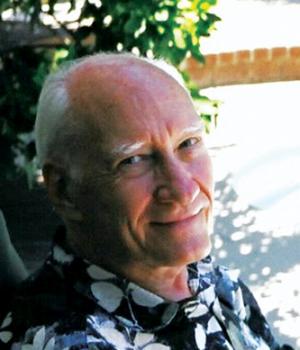Not in stock

Lani Smith
Lani (Kamiki) Smith, one of the most important composers in the Lorenz Publishing Company's history, was born in Cincinnati, Ohio on June 9, 1934. He was educated at the College‑Conservatory of Music at the University of Cincinnati (BM and MM), and in 1958 he was co‑winner (with Charles Wuorinen) of the Joseph H. Bearns Prize in Music from Columbia University, an award that honors America's most promising young composers. At age twenty‑five, Smith published his first piece with Lorenz, thus beginning a long career at the company. From 1967–82, Smith was a member of the editorial and composition staff in Dayton, where he had responsibility for a number of publications and organ magazines. Even after leaving the editorial staff to move to California, Smith continued to compose relentlessly for Lorenz until just days before his final brief illness. He died peacefully on June 24, 2015.
Smith was one of the most prolific classical composers in music history, with more than 4,000 published compositions, written over sixty years as a professional composer. For Lorenz, he worked in every musical genre, including choral anthems, cantatas, children's musicals, instrumental pieces, piano/organ duos, and organ and piano solos. His stylistic versatility was displayed in compositions that ranged from the late 1970s Easter rock opera Jubilation! to significant concert organ pieces that formed the initial repertoire of The Sacred Organ Journal. While active in all areas, he had a particular gift for organ music, and his output of several thousand pieces makes him the most prolific composer for the instrument in the history of keyboard literature, surpassing even the baroque masters. Smith's music was a beloved mainstay of Lorenz's signature organ magazines, and his work appeared in every issue of every magazine from the late 1960s onward.
Outside of his writing for Lorenz, Smith also composed concert and film music, including works for orchestra, chamber ensembles, solo voices, ballet, and musical theater. He received a grant for composition from the Rockefeller Foundation in 1967. As organist and choir director, Smith served churches in Ohio, Michigan, and California. His final years were spent in Arizona in what he termed "semi‑retirement" with his wife of thirty‑five years, Jama. Even during that time, he continued to compose unrelentingly. All who knew Smith testified to his winning personality and remarkably optimistic spirit.
Few composers have had Lani Smith's gift for consistent craftsmanship and imagination. The sustained quality across his output is remarkable. Because of his large body of work, Smith published compositions under numerous pen names, including Edward Broughton, David Paxton, Franklin Ritter, Tom Birchwood, Gerald Peterson, and Christopher Gale.
